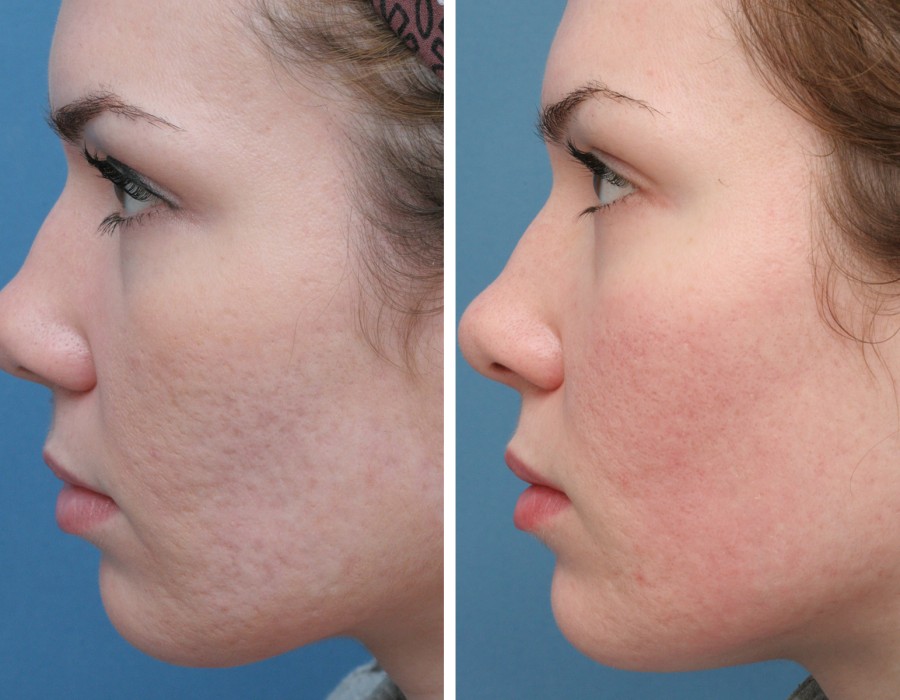Understanding Acne Scars on Oily Skin
Acne Scar Treatment develops as a result of inflammatory acne lesions, such as cysts, papules, pustules, or nodules, which damage the skin's tissue. When the skin attempts to heal these lesions, it can produce too much collagen or too little collagen, resulting in different types of scars.
Types of Acne Scars
- Atrophic Scars: These scars appear as depressions in the skin and are commonly seen in individuals with oily skin.
- Hypertrophic Scars: Raised scars that form due to excess collagen production during the healing process.
- Ice Pick Scars: Deep, narrow scars that resemble small punctures on the skin's surface.
- Boxcar Scars: Broad depressions with sharply defined edges on the skin.
- Rolling Scars: These scars have a wave-like appearance and are caused by damage beneath the skin's surface.
Challenges of Treating Acne Scars on Oily Skin
Individuals with oily skin face unique challenges when it comes to treating acne scars. The excess sebum production can exacerbate acne and make it difficult for topical treatments to penetrate the skin effectively. Moreover, oily skin is prone to clogged pores, which can further aggravate acne and hinder scar healing.
Key Ingredients for Acne Scar Treatment on Oily Skin
To effectively treat acne scars on oily skin, it's essential to incorporate ingredients that target both scarring and excess oil production. Some key ingredients include:
- Salicylic Acid: This beta hydroxy acid (BHA) exfoliates the skin, unclogs pores, and reduces inflammation.
- Retinoids: Vitamin A derivatives such as retinol and tretinoin promote cell turnover, leading to smoother skin and reduced scarring.
- Alpha Hydroxy Acids (AHAs): Glycolic acid and lactic acid help exfoliate the skin's surface, improving the appearance of acne scars.
- Niacinamide: Also known as vitamin B3, niacinamide helps regulate sebum production and reduces inflammation.
Professional Treatments for Acne Scar Removal
In addition to topical treatments, various professional procedures can help improve the appearance of acne scars on oily skin:
- Chemical Peels: Chemical peels exfoliate the skin's surface, promoting cell turnover and collagen production.
- Microdermabrasion: This procedure involves using a diamond-tipped device to gently exfoliate the outer layer of the skin, reducing the appearance of scars.
- Laser Therapy: Laser treatments target the underlying layers of the skin, stimulating collagen production and reducing the visibility of scars.
- Microneedling: This minimally invasive procedure creates tiny punctures in the skin, stimulating collagen production and promoting scar remodeling.
Skincare Routine for Treating Acne Scars on Oily Skin
A comprehensive skincare routine can help manage oily skin and minimize the appearance of acne scars. Here are some essential steps:
- Cleansing: Use a gentle cleanser twice daily to remove excess oil, dirt, and impurities from the skin.
- Exfoliating: Incorporate exfoliating products containing salicylic acid or AHAs to unclog pores and promote cell turnover.
- Hydrating: Choose oil-free moisturizers and hydrating serums to keep the skin balanced and hydrated.
- Sun Protection: Apply a broad-spectrum sunscreen with an SPF of 30 or higher daily to protect the skin from sun damage, which can worsen acne scars.
DIY Remedies for Acne Scar Treatment
In addition to professional treatments and skincare products, some natural remedies may help improve the appearance of acne scars on oily skin:
- Lemon Juice: Rich in vitamin C, lemon juice has a brightening effect on the skin and may help fade acne scars.
- Aloe Vera: Known for its soothing properties, aloe vera gel can help reduce inflammation and promote wound healing.
- Honey: A natural humectant, honey helps moisturize the skin and has antibacterial properties that can aid in acne scar healing.
- Tea Tree Oil: With its antimicrobial and anti-inflammatory properties, tea tree oil can help reduce acne and prevent further scarring.
Preventing Future Acne Scars on Oily Skin
While treating existing acne scars, it's essential to prevent new ones from forming. Here are some tips:
- Avoid Picking or Squeezing Acne: Manipulating acne lesions can increase inflammation and worsen scarring.
- Use Non-Comedogenic Products: Choose skincare and makeup products labeled "non-comedogenic" to prevent clogged pores.
- Maintain a Healthy Lifestyle: Eat a balanced diet, stay hydrated, manage stress, and get enough sleep to support overall skin health.
Consulting a Dermatologist
For severe or stubborn acne scars, it's crucial to seek professional help from a dermatologist. A dermatologist can assess your skin condition, recommend appropriate treatments, and provide personalized advice for managing oily skin and acne scars.
Conclusion
Acne Scar Treatment in Riyadh can be a source of frustration and self-consciousness, particularly for individuals with oily skin. However, with the right treatment approach and skincare routine, it's possible to improve the appearance of acne scars and achieve smoother, clearer skin. By incorporating professional treatments, key ingredients, and preventive measures, you can effectively address acne scars on oily skin and regain confidence in your complexion.






Comments